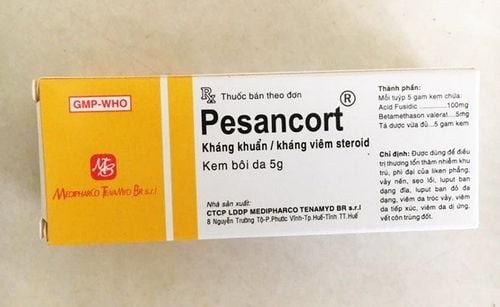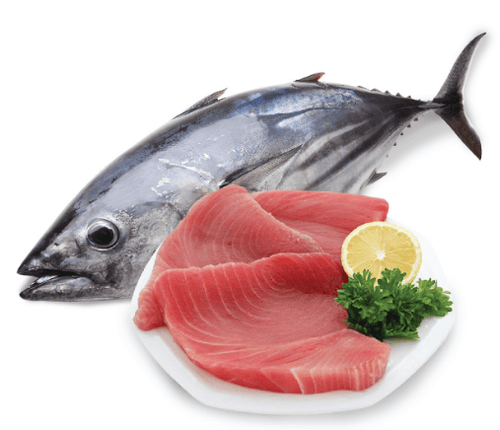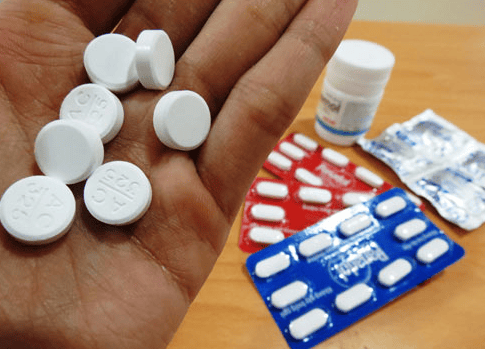This is an automatically translated article.
A fish allergy is an allergy in which the body's immune system reacts abnormally to fish with fins such as tuna, halibut, or salmon. This is a less common form of food allergy, affecting more women than men and more adults than children.
1. Agent
Allergies are caused by the body's abnormal immune response to a harmless allergen, called an allergen. When an allergy occurs, the immune system releases immunoglobulin E (IgE), which causes mast cells and other blood cells to open up, releasing histamine into the bloodstream. The normal role of histamine is to dilate blood vessels so that larger immune cells can access the site of injury or infection. In the absence of injury or infection, histamine can cause skin, respiratory, and gastrointestinal symptoms that we recognize as allergic reactions.
The main allergen that causes fish allergies is a protein called parvalbumin. Parvalbumins vary slightly between fish, so an allergy to one type of fish often results in an allergy to other fish species (a condition known as multiple hypersensitivity).
2. Symptoms
Hives (urticaria) or skin rash; Whole body itching; stuffy nose and sneezing (allergic rhinitis); Headache; Shortness of breath (asthma); Indigestion and stomach pain; Ợ gas, bloating or gas; Diarrhea; Nausea or vomiting.

Dị ứng cá biển có thể gây ra triệu chứng tiêu chảy cho người dùng
Symptoms can also develop when an infected person is exposed to the air in the fish processing environment or to surfaces or utensils used to prepare fish. In some cases, a skin reaction called contact dermatitis can develop when touching fish or fish residue.
In some people, a fish allergy can be severe and lead to the rapid development of anaphylaxis. This dangerous reaction is characterized by widespread rash, swelling of the face and tongue, wheezing, difficulty breathing, rapid heartbeat, and delirium. If not treated right away with injections of epinephrine and other emergency interventions, anaphylaxis can lead to shock, coma, heart or respiratory failure, and even death.
3. Control and treatment
Doctors often recommend that people who are allergic to one type of fish with fins avoid consuming all other fish. If you are allergic to a particular type of fish and really want to include other types of fish in your diet, talk to your allergist about testing those fishes. Patients should not change their diet without the guidance of an allergist.
Many prepared foods contain fish in some form. Fish is a common ingredient in Worcestershire sauces and Caesar salads and is sometimes found in counterfeit products (most commonly instant crab sticks) as surimi. Fish is also very popular in Asian cuisine, such as Vietnam's fish sauce.
While an allergy to fish protein is the most common, an allergy to fish gelatin (made from fish skin and bones) is possible. People with fish allergies should consult an allergist before taking fish oil supplements.
Due to the high risk of cross-contamination during food processing, it is best for people with allergies to avoid seafood restaurants in general, even if the user intends to order something other than fish. Stay away from the area where the fish is cooked, as protein can escape into the air during cooking.
Treatment of fish allergy includes absolute avoidance of allergenic fish or all fish in general. Because fish is often implicated in cases of anaphylaxis, allergists advise patients with fish allergies to treat allergy symptoms with epinephrine (adrenaline), which is prescribed by a doctor and injected in an auto-injector. . Anaphylaxis can happen quickly and can be fatal unless epinephrine is injected as soon as the person notices the symptoms of anaphylaxis. Although only epinephrine can reverse the symptoms of anaphylaxis; For less severe symptoms, your doctor may prescribe an antihistamine.
Although a fish allergy may be less common than a seafood or nut allergy, it can be equally severe. To avoid unfortunate circumstances, consumers should take steps to protect themselves during the food selection process.

Khi bị dị ứng cá biển bạn cần đến gặp bác sĩ chuyên khoa để được điều trị kịp thời
Fish allergy if not handled promptly will cause many dangerous complications. Therefore, when you have any symptoms of a food allergy, you should immediately go to a medical facility to be examined and treated by a specialist. doctor. The International General Hospital has successfully received and treated many cases of fish allergy from mild to severe without leaving complications. Vinmec International General Hospital is a high-quality medical facility in Vietnam with a team of highly qualified medical professionals, well-trained, domestic and foreign, and experienced.
A system of modern and advanced medical equipment, possessing many of the best machines in the world, helping to detect many difficult and dangerous diseases in a short time, supporting the diagnosis and treatment of doctors the most effective. The hospital space is designed according to 5-star hotel standards, giving patients comfort, friendliness and peace of mind.
If you have a need for examination and treatment at Vinmec, please register directly at the website or contact the hotline system for detailed advice.
Please dial HOTLINE for more information or register for an appointment HERE. Download MyVinmec app to make appointments faster and to manage your bookings easily.













